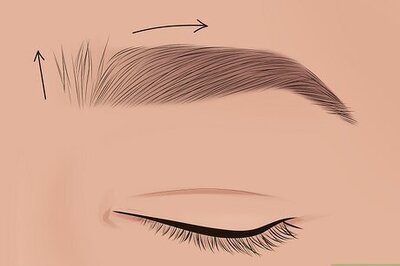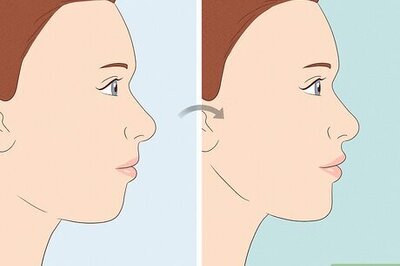
views
Diabetes is a growing challenge as it is affecting people across all ages. The disease also causes many other ailments in affected patients and in the long run affects vital organs of the body. Diabetes also increases the chances of some common ocular morbidities that affect the patients like cataracts, nerve palsies and glaucoma among others.
Diabetes can also increase the risk of dry eye syndrome. According to experts, the problem is prevalent among diabetes patients of 65-year-old and above. As per Mayo Clinic, Dry Eye Syndrome is a common condition that occurs when tears fail to provide adequate lubrication for the eyes. It is a case of concern because this will make the eyes more prone to bacterial attack and the condition could affect cornea.
There are a few symptoms, which could be alarming for the diabetes patients. The diabetic individuals should keep a watch on the following signs in eyes.
- A burning sensation in eyes
- Foreign body sensation
- Stickiness and watering
- Red eye and blurry vision
- Photophobia
Dr Neeraj Sanduja of Viaan Eye and Retina Center, Gurugram, says that sensation is a common symptom before the disease progresses. Another red alert is the tear film in eyes. Patients with diabetes-related DES tend to have a tear film in the eye when the syndrome advances. If unnoticed then such situations in the future can lead to keratoepitheliopathy and keratitis, according to Dr Sanduja.
It is important to understand the causes so that one can take timely steps. Here are a few causes which could induce DES in diabetic patients.
· Peripheral neuropathyys
· High blood glucose levels
· Insulin insufficiency and inflammation
As said earlier tear film dysfunction is interrelated with DES. It is also important to note that patients with more than 10 years of Diabetes have strong possibilities of developing dry eyes. “Patients with poor glycemic control (HbA1c =8%) have a higher degree of dry eyes. Also, DES in patients with type 2 DM is significantly associated with increasing age," says Dr Sanduja.
For treating such syndrome, health experts opt for corticosteroids, nonsteroidal anti-inflammatory drugs, cyclosporin A, tacrolimus and autologous blood serum eye drops. Taking the guidance of the doctor is important before medications in such conditions.
Read all the Latest News and Breaking News here















Comments
0 comment